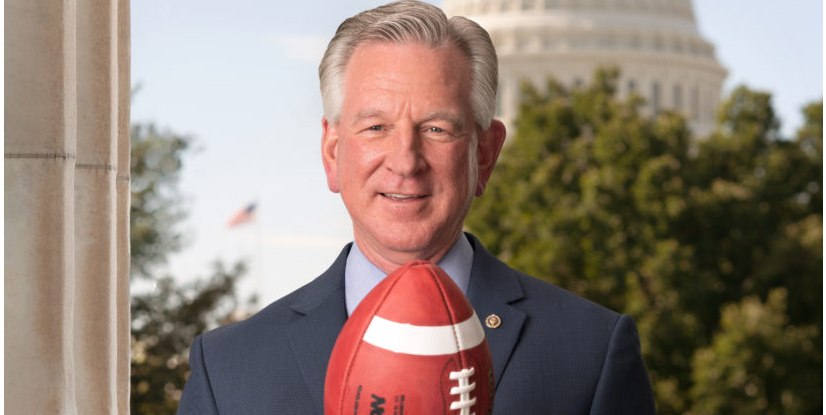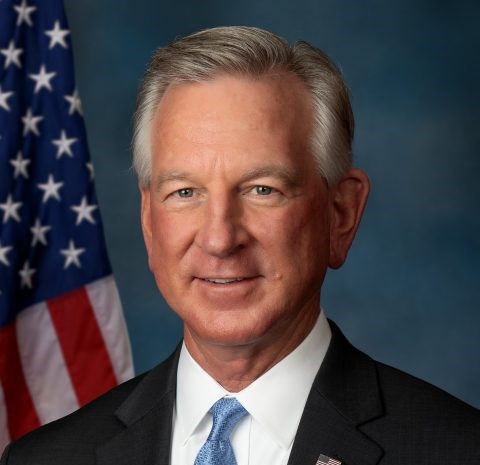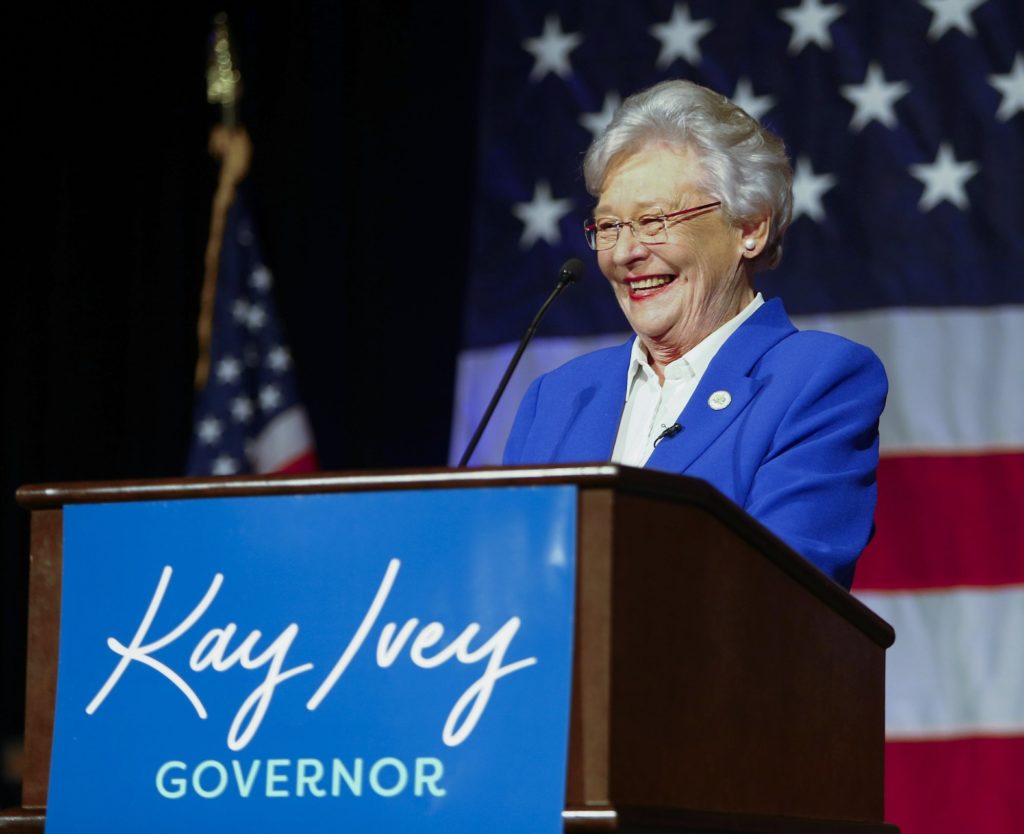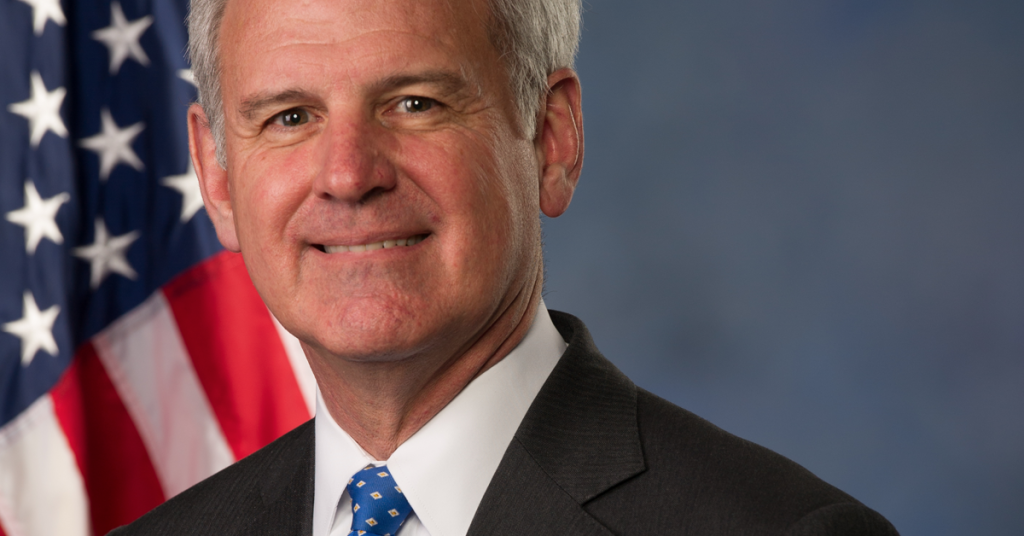California Senator Dianne Feinstein dies at age 90

U.S. Senator Dianne Feinstein of California has died, the Associated Press reported. She was 90 years old. Feinstein died on Thursday night at her home in Washington, D.C. Feinstein’s chief of staff, James Sauls, said in a statement, “Sadly, Senator Feinstein passed away last night at her home in Washington, D.C. Her passing is a great loss for so many, from those who loved and cared for her to the people of California that she dedicated her life to serving. Senator Feinstein never backed away from a fight for what was just and right. At the same time, she was always willing to work with anyone, even those she disagreed with, if it meant bettering the lives of Californians or the betterment of our nation. There are few women who can be called senator, chairman, mayor, wife, mom and grandmother. Senator Feinstein was a force of nature who made an incredible impact on our country and her home state. She left a legacy that is undeniable and extraordinary. There is much to say about who she was and what she did, but for now, we are going to grieve the passing of our beloved boss, mentor and friend.” Feinstein was born on June 22, 1933, and was the oldest sitting U.S. Senator. Many leaders had expressed concern about her health in the past few years and questioned if she was fit to continue to work as a Senator. Feinstein stepped down as the top Democrat on the Judiciary panel after the 2020 elections. In February, she announced that she planned to retire at the end of 2024 when her term was up. Elected to the Senate in 1992, Feinstein was seen as more of a centrist Democrat and was known to work to find common ground with Republicans. “In San Francisco, she showed enormous poise and courage in the wake of tragedy and became a powerful voice for American values. Serving in the Senate together for more than 15 years, I had a front-row seat to what Dianne was able to accomplish,” President Joe Biden said in a statement. “Dianne made her mark on everything from national security to the environment to protecting civil liberties. She’s made history in so many ways, and our country will benefit from her legacy for generations.” “As we mourn with her daughter Katherine and the Feinstein family, her team in the Senate, and the people of California, we take comfort that Dianne is reunited again with her beloved Richard. May God Bless Dianne Feinstein.” Senate Majority Leader Chuck Schumer wrote on X, “Sen. Dianne Feinstein was a friend, a hero, a leader who changed the Senate and America for the better. Mourning this tremendous loss—we’re comforted in knowing how many mountains she moved, lives she impacted, glass ceilings she shattered. America’s a better place because of her.” Senator Katie Britt wrote on X, “Dianne Feinstein lived a life of service, blazing a path for women in the Senate and girls across our nation. In the face of tragedy and tribulations throughout her career, she was fearless. Our prayers are with her loved ones.” Senator Tommy Tuberville said, “Sad to hear about the loss of my friend Dianne Feinstein. Grateful I got to know her. Keeping her family and loved ones in my thoughts and prayers.”
Katie Britt votes to advance water projects bill

U.S. Senator Katie Britt, a member of the Senate Committee on Appropriations, joined her colleagues in advancing the Fiscal Year 2024 Energy and Water Development Appropriations Act. The bill appropriates more than $72 million in direct investments Senator Britt secured for projects across Alabama. “From the rivers that wind across Alabama to Mobile Harbor, our state’s waterways are critical connectors that drive opportunity, recreation, and economic growth in every corner of our great state,” said Sen. Britt. “These investments would help ensure Alabama remains beautiful and a sweet home to do business long into the future.” In the bill, Britt prioritized investing in key Alabama priorities, including the following: · $20.6 million to revitalize and repair the George W. Andrews Lock and Dam on the Apalachicola, Chattahoochee, and Flint Rivers at Columbia, Alabama. · $18.4 million for dredging, maintenance, and operations on the Tennessee-Tombigbee Waterway. · $12.1 million for dredging, maintenance, and operations on the Black Warrior and Tombigbee Rivers · $11.2 million for dredging, maintenance, and operations in Mobile Harbor. · $10.5 million for dredging, maintenance, and operations on the Alabama-Coosa-Tallapoosa River System Senator Britt also supported programmatic language in the bill that would set aside $200 million for the Appalachian Regional Commission, which serves 37 counties in Alabama, and $30.1 million for the Delta Regional Authority, which serves 20 counties across the state. The Fiscal Year 2024 Energy and Water Development Appropriations Act provides $58.095 billion in total funding for the Department of Energy, Army Corps of Engineers, Bureau of Reclamation, and independent agencies. Senator Dianne Feinstein (D-California) Chairs the Senate Appropriations Subcommittee on Energy and Water Development. “Our energy and water infrastructure need significant investment to meet the needs of Americans throughout the country, particularly in the West,” said Sen. Feinstein. “This bill will help modernize our water systems to improve and increase dam safety, water storage, water recycling, desalination projects, and more. And as we experience new heat records, our bill also makes key investments in expanding clean energy and fighting against climate change. I want to thank Ranking Member [John] Kennedy for being a partner in moving forward this important bipartisan legislation.” Senator Patty Murray (D-Washington) Chairs the Senate Appropriations Committee. “This is a strong bipartisan bill that keeps America’s lights on and water flowing to our farms, propels cutting-edge scientific research, ensures nuclear security, and advances key environmental cleanup efforts,” said Chairwoman Murray. “These investments are key to making sure communities have the water resources they need to grow crops, strengthening our competitiveness globally, furthering clean energy research and capacity, and so much else. I’m also glad we are able to provide new resources to maintain our ports and harbors, which are so critical to trade, tourism, and even people’s daily commutes.” The bill provides $8.934 billion in total funding for the Corps of Engineers. The bill provides a historic $2.77 billion for the Harbor Maintenance Trust Fund to improve navigation through dredging ports, maintain waterways, and ensure efficient water transport. The bill also includes funding for critical inland waterways navigation projects. The bill continues investments in critical construction projects to protect communities from extreme weather events and more frequent flooding. The bill also expands the Water Infrastructure Financing Program to include levees, allowing low-interest loans for communities to make improvements and increase protection from flood events. The Bureau of Reclamation receives $1.921 in funding to deliver reliable water and hydroelectric power to the western United States. The bill includes $186 million for Western drought programs under the Water Infrastructure Improvements for the Nation (WIIN) Act, which supports long-term drought strategies, including water storage, water recycling and reuse, and desalination. The bill includes funding to support rural water supply projects and critical grant programs that invest in research and innovative applications of water-saving technologies. The bill provides $17.3 billion for the Department of Energy’s non-defense programs. The bill provides $8.43 billion in new directed funding—$330 million over fiscal year 2023—for the Office of Science. This funding will help implement the bipartisan CHIPS and Science Act of 2022. The Office of Science is the largest federal sponsor of basic research in the physical sciences and supports 22,000 researchers at 17 national laboratories and more than 300 universities. The bill provides $3.5 million in new funding for industrial emissions and technology coordination to coordinate clean industrial research, development, demonstrations, and deployment across the Department of Energy. The bill provides $3.686 billion for energy efficiency and renewable energy programs, $227 million above fiscal year 2023. This includes increases in wind energy, water technologies, and advanced manufacturing. The bill provides $200 million for Cybersecurity. The bill provides $1.55 billion for Nuclear Energy research and development, including funding for microreactor development and accident-tolerant fuel important for nuclear reactor safety. The bill provides $75 million for the Indian Energy Policy and Programs and updates the Tribal Loan Guarantee Program to help Tribal Nations deploy clean energy. The bill also provides $32.8 billion for atomic energy defense activities for the Department of Energy, including Nuclear National Security, and $18.8 billion for Weapons Activities, $1.7 billion above fiscal year 2023, including $142 million above the request for Savannah River plutonium pit production, and a nearly $400 million or 110 percent increase above fiscal year 2023 for the Uranium Processing Facility in Oak Ridge, Tennessee. The Fiscal Year 2024 Energy and Water Development Appropriations Act now moves to the full Senate for consideration. Katie Britt was elected to the Senate in 2022. To connect with the author of this story or to comment, email brandonmreporter@gmail.com.
Tommy Tuberville and colleagues introduce bipartisan legislation to encourage Americans to pursue skills training and credentialing programs

U.S. Senator Tommy Tuberville (R-Alabama) joined a group of bipartisan colleagues to reintroduce the Freedom to Invest in Tomorrow’s Workforce Act. The legislation would support economic growth and workforce development by allowing Americans to use ‘529’ education savings accounts for skills training, credentialing, and certification programs. Under current law, workers and their families can only use ‘529’ accounts to pay for college, university, and vocational school expenses. “During my four decades as a coach and educator, I met many students with unique skills they learned and applied outside of a traditional classroom setting,” said Sen. Tuberville. “Our economy cannot grow without skilled workers, and it’s important we incentivize Americans to pursue careers that both align with their interests and fill crucial gaps in our workforce. Not all of those valuable careers require college degrees. This legislation allows savings accounts set aside for education to be applied to other forms of training and certification.” The legislation is cosponsored by U.S. Sens. Amy Klobuchar (D-Minnesota), Mike Braun (R-Indiana), Tammy Duckworth (D-Illinois), Susan Collins (R-Maine), Dianne Feinstein (D-California), Joe Manchin (D-West Virginia), Martin Heinrich (D-New Mexico), and Peter Welch (D-Vermont). “Skills training and development programs help provide people with the tools and resources they need to succeed in our economy,” said Sen. Klobuchar. “By allowing workers to use their ‘529’ educational savings to pay for additional training and certification, our bipartisan legislation will enable more Americans to access and benefit from these valuable programs.” “Every high school student in America needs to know that you don’t necessarily have to go to college to have a great career,” said Braun. “By expanding opportunities and access to skills training programs, and letting Americans use their ‘529’ education savings to pay for it, we can address the nationwide skills shortage and fill American jobs,” said Braun. Tuberville spent four decades working with young adults as a coach and educator. Now he is a vocal advocate for improving workforce development and skills training throughout the United States. Tuberville has argued that career and technical education programs like dual enrollment and apprenticeships should be considered respectable paths to opportunity, not second-rate. As the baby boomers leave the workforce, many industries, including trades, are struggling to fill the void. According to a study by the American Action Forum, over the next decade, the USA could face a shortage of about 765,000 needed workers with the skills that come from an associate degree or some college. The figure for workers needing a bachelor’s degree or higher is about 8.62 million. This translates to about 5.6 percent of the estimated 2029 labor force. According to their report, Alabama has a projected shortage of 43,000 credentialed/associate degree workers and 129,000 four-year college graduates and higher. The health sector is already feeling shortages of 2-year nursing graduates (ADNs), 4-year nursing graduates (RNs), doctors, and specialists. Tommy Tuberville is in his first term representing Alabama in the United States Senate following a successful coaching career. He is a member of the Senate Armed Services, Agriculture, Veterans Affairs, and HELP Committees. To connect with the author of this story or to comment, email brandonmreporter@gmail.com.
Joe Biden rallies Senate Democrats, endorses Republican measure

President Joe Biden visited the Senate on Thursday to demonstrate unity among Democrats — but he ended up endorsing a Republican priority instead. With Democrats acknowledging they cannot get much done in the closely divided Congress, Biden has pledged to try to find areas where the two parties can agree. He made good on that promise in remarks at a caucus luncheon, telling senators that he will sign a GOP-backed measure to overturn changes to the criminal code in the District of Columbia. Biden later tweeted: “I don’t support some of the changes D.C. Council put forward over the mayor’s objections — such as lowering penalties for carjackings. If the Senate votes to overturn what D.C. Council did — I’ll sign it.” Accompanying Biden as he left the luncheon, Senate Majority Leader Chuck Schumer said he believes “we can get a lot of good bipartisan stuff done in these two years” and that Democrats “are filled with unity, optimism — and optimism about 2024.” Even so, Schumer’s Democratic Senate has been largely immobilized this year as the newly Republican House has shown little appetite for compromise. In addition, a string of Senate Democrats have been absent due to health issues, and some moderate senators facing reelection next year are voting with Republicans. While Schumer gained a coveted extra seat for his party in the November elections, bringing the margin to 51-49, Democrats have not yet been able to use their majority to advance any of their policy goals. Schumer has repeatedly focused on Democratic accomplishments in the last Congress, helped by the then-Democratic-led House, in lieu of making promises about the current session. “If the last two years focused on getting our agenda passed into law, one of the focuses of our lunch will be on how the next two years will be about implementing that agenda,” Schumer said on the Senate floor Thursday morning as he previewed Biden’s visit. In the absence of Democratic legislation, Republicans are finding some success advancing their own policy goals — by forcing votes on Biden administration regulations that they see as overly burdensome. The Republican resolution that Biden said he will support would override the District of Columbia’s effort to overhaul how the city prosecutes and punishes crime as the local murder rate has skyrocketed. The House passed the same measure last month with some Democratic support. As they left the caucus meeting with Biden, several Democratic senators said they will support, or are considering supporting, the Republican effort to repeal the changes to the D.C. criminal code. “If anything, we should be increasing penalties for certain offenses,” Sen. Bob Casey of Pennsylvania said. He said he will vote to overturn the changes to the D.C. code. On Wednesday, the Senate voted to overturn a new rule set by the Department of Labor over the way asset managers consider climate change and “environmental, social and governance” factors in investments for retirement plans. It was able to pass with the support of Democratic Sens. Joe Manchin of West Virginia and Jon Tester of Montana, who are both up for reelection next year. Biden has said he will veto that and keep the rule in place. Republicans are forcing the simple-majority votes by using the Congressional Review Act, which allows Congress to overturn certain regulations that have been in place for a short time. Those votes are some of the only policy measures that have been considered this year, as Schumer has put a raft of judicial and executive branch nominations up for votes instead of legislation that has little chance of becoming law. Democrats have had to hold back on some of the more controversial nominations, as well, as members of the caucus have had extended absences. New Pennsylvania Sen. John Fetterman is gone for several weeks dealing with clinical depression after he suffered a stroke last year. California Sen. Dianne Feinstein said Thursday that she has been hospitalized in San Francisco with a case of shingles. And Pennsylvania Sen. Bob Casey returned from a short absence this week after undergoing surgery for prostate cancer. Schumer said Monday that Biden’s visit would also be focused on the contrast between Democratic policy priorities and House Republicans — and the dilemma that the House GOP faces as conservatives insist on budget cuts in exchange for raising the country’s debt limit, action that must come this year to avoid a default. “We’ll talk to the president about how we can make sure Americans see that contrast,” Schumer said before Biden’s visit. Republished with the permission of The Associated Press.
Joe Guzzardi: White House shrugs at Chinese espionage

A federal jury in Chicago recently found Chinese national Ji Chaoqun, 31, a member of the U.S. Army reserves, guilty of conspiracy to act as an agent of a foreign government. The jury also found Chaoqun guilty of one count of making false statements to the U.S. Army during his application process. Ji enlisted in 2016 via the controversial Military Accessions Vital to the National Interest program (MAVNI) – an initiative allowing U.S. military offices to hire legal aliens deemed sufficiently useful for service. In light of Ji’s conviction, the MAVNI program should be re-evaluated. In a statement, the Department of Justice said that Chaoqun worked for intelligence agents that operated within the Chinese government. In that capacity, he attempted to recruit engineers and scientists on behalf of the Chinese Intelligence Ministry. Ji arrived in the U.S. on an F-1 student visa to study electrical engineering at the Illinois Institute of Technology, which had forged ties with Chinese universities and colleges. During the academic year 2020/2021, 317,299 Chinese students were enrolled in U.S. academic institutions. China is the major sender of international students to U.S. college campuses. Among all international graduates, more than a million have remained in the U.S. and work as part of the Optional Practical Training Program. They have displaced American information technology employees or aspiring college degree holders looking for jobs. Chaoqun’s conviction is the latest in a growing list of Chinese nationals who have infiltrated, with little difficulty, the federal government, academia, and U.S. corporations. Because of the victims’ high profiles, the two most well-known Chinese spy cases are Fang Fang, California U.S. Rep. Eric Swalwell’s mistress, and California Sen. Dianne Feinstein’s chauffer and aide for two decades. At the time, Feinstein was the Senate Intelligence Committee chair. When the FBI investigations heated up, the two Chinese operatives fled the country and returned home. No further information about them has been gleaned. The conclusion is, however, that if two low-level Chinese spies can access the U.S. Congress, then infiltration must be a snap. If China represents the biggest threat to the U.S., as FBI Director Christopher Wray and others insist, then tighter oversight on arriving Chinese nationals is paramount. Wray said that the Chinese Communist Party (CCP) has implemented a multi-layered, generational campaign with the goal to become the world’s economic and technological leader. Wray listed economic espionage, data hacking, intellectual property theft, bribery, blackmail, and other coercive attempts “to sway our government’s policies, distort our country’s public discourse, and undermine confidence in our democratic processes and values.” The FBI director could have pointed to Swalwell and Feinstein as examples to drive his point home. In June 2015, Chinese hackers stole the personal data of 145 million Americans when they accessed the Office of Personnel Management’s servers. With a warning from Wray, a top-ranking law enforcement officer, and documented case history to support his concerns, the federal government should, at a minimum, be on high alert to China’s efforts to undermine the government. Instead, the Biden administration proceeds blasély on its existing course and may accelerate Chinese nationals’ admissions and their path to citizenship. In February, the President’s Advisory Commission of Asian Americans, Native Hawaiians, and Pacific Islanders (AANHPI) held its first-ever meeting. Joe Biden established the commission through a 2021 executive order and appointed Health and Human Services Secretary and U.S. Trade Representative Ambassador Katherine Tai to co-chair. The 25 individual commissioners have extensive involvement in diversity and equity issues. Six subcommittees were formed to advance equity, justice, and opportunity, including a subcommittee to address immigration and citizenship. Whenever the Biden administration talks about immigration in the same breath with equity, justice, and opportunity, the takeaway is more immigration which in turn means more employment permits granted to immigrants and fewer jobs for Americans. AANHPI is toiling in obscurity and will be disbanded when a new Congress takes over in January 2023. But the commission reflects Biden’s mindset; equity for all except working Americans, and specifically border city residents whose communities migrants have overrun, and whose lifestyles have been altered, possibly forever, by the president’s unshakeable commitment to open borders. Joe Guzzardi is a nationally syndicated newspaper columnist who writes about immigration and related social issues. Joe joined Progressives for Immigration Reform in 2018 as an analyst after a ten-year career directing media relations for Californians for Population Stabilization, where he also was a Senior Writing Fellow. A native Californian, Joe now lives in Pennsylvania. Contact him at jguzzardi@pfirdc.org.
Tommy Tuberville praises Hoover’s National Computer Forensics Institute

U.S. Senator Tommy Tuberville praised Hoover’s National Computer Forensics Institute (NCFI) in a speech on the floor of the Senate, highlighting the importance of the NCFI and its impact on officers and public safety. Tuberville helped pass the reauthorization bill to support the NCFI, where law enforcement officers come to Alabama from across the country to receive cybercrime training. The Senate passed bipartisan legislation, the National Computer Forensics Institute Reauthorization Act, which reauthorizes the operation of the Alabama-based NCFI. The bill also approves resources for federal officers to attend the law enforcement training center, which has previously only been available for local and state officials. Sens. Tuberville and Richard Shelby (R-Alabama) cosponsored the legislation along with Sens. John Cornyn (R-Texas), Chuck Grassley (R-Iowa), Dianne Feinstein (D-California), Maggie Hassan (D-New Hampshire), Amy Klobuchar (D-Minnesota), and Sheldon Whitehouse (D-Rhode Island). “Cybercriminals can hack pipelines and other key infrastructure systems that are crucial to our daily lives and pertains to our national security,” Sen. Tuberville said. “Officials trained at NCFI are a part of our front line of defense against these attacks. That front line — our local police officers, district attorneys, and state officials — know the people they serve best. I want those protecting my home and my state trained to identify and combat the latest threats — and I’m sure you do as well.” “Earlier this year, after a madman terrorized shoppers at a grocery store in Buffalo, New York, NCFI-trained graduates were able to act quickly and support the police response,” Tuberville continued. “They used what they learned to conduct a forensic exam of a Go-Pro camera and a cell phone used by the shooter. That crucial video evidence is currently being used in the prosecution.” “Brave men and women in law enforcement across the country are willing and able to protect Americans from all crime, including cybercrime, but they need the tools and resources to continue to do so effectively,” Tuberville added. “While some in Congress and the current administration have worked to shrink the size and strength of our law enforcement, I am unapologetic with my support for the men and women in blue. We must continue to provide specialized resources that all of them need to do their jobs. That’s why I joined a group of colleagues from both sides of the aisle to introduce the National Computer Forensics Institute Reauthorization Act.” “The National Computer Forensics Institute is an example of a state’s ingenuity and foresight — a group of individuals identifying a gap that needed to be filled and providing a service with national benefits,” Tuberville explained. “The success of the Institute represents the impact state leaders, and Congress can have on the entire country when we work together to support innovative and pragmatic solutions to our biggest problems. Alabama is proud of the National Computer Forensics Institute, and we’re proud to provide cutting-edge training to many Americans and our brave law enforcement.” In 2006, the Alabama Office of Prosecution Services and the Alabama District Attorneys Association saw the need for a more coordinated effort to train law enforcement officers, prosecutors, and judges in digital evidence. Those agencies outlined a plan to bring that training to more of our law enforcement officials — and formed a unique and important partnership with the U.S. Secret Service to create a center for forensics education for state and local law enforcement officials. NCFI opened in 2008 under a roof provided by the City of Hoover. The NCFI opened with a $4 million budget and just 264 students. The 40,000 square-foot NCFI facility now taps into a $13 million annual budget to train more than 4,000 students from across the country annually. To date, more than 19,000 state and local officers, prosecutors, and judges representing all 50 states have been trained at the institute in the heart of Alabama. The NCFI focuses on teaching officials how to investigate cyber and electronic crime — always accounting for emerging tech and novel digital capabilities — to prepare graduates to combat cyber-attacks and personal data theft. The skills learned at the NCFI also prepare law enforcement officers to identify and utilize key digital data during criminal investigations. The reauthorization will allow the NCFI to keep training thousands of officers a year in Alabama to keep communities across the country safe. Graduates have reported utilizing their training in more than 578,000 digital forensics exams. The NCFI seeks to educate state, local, tribal, and territorial law enforcement officers, prosecutors, and judges in the continually evolving cyber and electronic crime-related threats, and educate, train, and equip them with the tools necessary for forensic examinations to combat those crimes. Sen. Tuberville was elected to his first term in the Senate in 2020 after a career in football coaching. To connect with the author of this story, or to comment, email brandonmreporter@gmail.com.
Tommy Tuberville’s veterans post-9/11 GI bill passes Senate

U.S. Senator Tommy Tuberville’s veterans bill (S. 3606) passed the U.S. Senate with unanimous support. The bill, which clarifies the information required on the post-9/11 GI Bill benefit transfer forms, is Senator Tuberville’s second piece of legislation to pass the Senate, after the Supporting Families of the Fallen Act passed in March. A bipartisan group of nine senators cosponsored the bill, including Senators John Thune, Marco Rubio, Mike Braun, Tim Scott, Marsha Blackburn, John Boozman, Raphael Warnock, Dianne Feinstein, and Richard Blumenthal. Once the bill passes the U.S. House of Representatives, where it also has bipartisan support, it will head to President Joe Biden’s desk to be signed into law. In a press release, Tuberville, applauded the support for the bill. “As the son of a veteran and a grateful American, I want to ensure that our veterans and their families are well-taken care of, not the victims of bureaucratic red tape,” said Tuberville. “This bill is another targeted, meaningful change that makes it easier for our veterans and their families to receive the benefits they so rightly deserve. I look forward to seeing this bill pass the House and sent to President Biden’s desk soon.” After learning of a small, but correctable error that makes it difficult for dependents to receive their Post-9/11 GI Bill benefits, Senator Tuberville introduced legislation to fix the issue in February 2022. The bill clarifies the information required on U.S. Department of Veterans’ Affairs (VA) and U.S. Department of Defense (DoD) forms filled out by a service member when they elect to have their post-9/11 GI Bill benefit transferred to a dependent. Part of current VA and DoD transfer forms requires the service member to fill out a field labeled “end date,” which refers to the date on which the dependent may no longer receive the benefit. Many service members were misreading the information requested in the GI Bill benefit transfer forms. This error resulted in eligible dependents being barred from education benefits due to an easily amendable error. Since this field is the cause of many incorrectly completed transfer forms, Senator Tuberville’s bill would remove the “end date” to prevent further issues. This bill will allow a service member to transfer his or her Post-9/11 GI bill benefits to a spouse or child so long as the service member has done the following: Completed at least six years on the date the service member requests to transfer the benefit, and Agreed to add four more years of service, and The individual receiving the benefits has enrolled in the Defense Enrollment Eligibility Reporting System (DEERS).
Steve Flowers: Seniority vs. Senility

Our senior senator, Richard Shelby, will be remembered as Alabama’s most prominent senator when he retires next December. Folks, that’s saying a lot because we have had a host of prominent men serve Alabama in the United States Senate, such as giants like Lister Hill, John Sparkman, and John Bankhead. However, history will record that none of these above senators brought the federal dollars back home to Alabama that Shelby has procured. Seniority is omnipotent in Washington. It is everything, and Senator Shelby has it. He is in his 35th year in the U.S. Senate. He has already broken Senator Sparkman’s 32-year record of longevity in Alabama history and at the end of his term next year he will have served a record 36 years in the Senate. In addition, Shelby was the U.S. Congressman for the old 7th Congressional district for eight years. Shelby has not only been the most prolific funneler of federal dollars to Alabama in our state’s history but he could also be considered one of the most profound movers and shakers of federal funds to their state in American history. His only rival was the late Senator Robert Byrd of West Virginia. Senator Byrd, who was in his ninth term as a senator when he died at 92, funneled an estimated $10 billion to his constituents during his 51 years in the Senate. The obvious question asked by observers of Washington politics is, “Are some of our most powerful senators too old to function cognitively?” I can attest to you that I know Senator Richard Shelby personally and he is the most cognitively alert and healthy 87-year-old man I have ever seen. He works out daily and has the memory of an elephant. In fact, his mental and cognitive abilities are similar to someone 30 years his junior. He very well could run and serve another 6-year term. However, he will be 88 at the end of his term. Shelby is one of five octogenarians serving in the Senate. California’s Dianne Feinstein is the oldest sitting senator at 88. She is followed by Iowa’s Charles “Chuck” Grassley who turns 88 next month. Shelby is the third at 87. James Inhofe of Oklahoma and Senator Pat Leahy of Vermont are 81. By the way, Grassley and Leahy are Shelby’s closest allies in the Senate. The question becomes, “How old is too old to be a U.S. senator?” According to the Congressional Research Service, the average age of senators at the beginning of this year is 64-years. At some point voters have to weigh, “Is my senator too old to perform the duties of the office or does the weight and power of their seniority and the benefit of their influence to the state outweigh their energy and cognizance?” Voters tend to go with experience and seniority over youth. Senator Feinstein has been the most widely discussed current senator for a decline in health. Liberals believe she was too conciliatory during Supreme Court nominee Amy Coney Barrett’s confirmation hearing. There is a pervasive whispering campaign about Feinstein’s alleged cognitive decline and the Democratic senior leadership has indeed quietly removed her as the ranking Democrat on the Senate Judiciary Committee. It was common knowledge and apparent that Senator Shelby’s predecessor as Chairman of Appropriations, Senator Thad Cochran of Mississippi, was not very cognitive in his last years in the Senate although he was younger, chronically. The most notable example of possibly staying too long is probably the story of legendary Senator Strom Thurman of South Carolina. In 2003 Strom Thurman retired at the age of 100 after 48 years in the Senate. It was no secret that his staff did everything for him during his last six-year term. Our founding fathers created a minimum age for serving in the U.S. House or Senate but did not address a maximum. The owner of Grub’s Pharmacy used by many on Capitol Hill in Washington raised eyebrows in 2017 when he revealed he routinely sent Alzheimer’s medication to Capitol Hill. There are continuing attempts to pass a Constitutional Amendment to limit the terms of Congressmen and Senators. Republicans run on the issue of term limits. It was part of their contract with America Agenda in 1994. Alabamians need to consider being for term limits in 2022 because it comes down to the old adage of whose ox is being gourd. We in Alabama are going to be up the proverbial creek without a paddle after Shelby. He is our power in Washington. We need to all jump on the term limit bandwagon beginning next year. See you next week. Steve Flowers is Alabama’s leading political columnist. His weekly column appears in over 60 Alabama newspapers. He served 16 years in the state legislature. Steve may be reached at: www.steveflowers.us.
Tommy Tuberville joins other leaders to change sexual assault investigations in the military

U.S. Senator Tommy Tuberville has joined a bipartisan group of senators to support a bill that will change the way the military conducts sexual assault investigations and prosecutions. Tuberville, a member of the Senate Armed Services Committee Subcommittee on Personnel, joined U.S. Senators Kirsten Gillibrand (D-NY), Chuck Grassley (R-IA), Joni Ernst (R-IA), Richard Blumenthal (D-CT), Ted Cruz (R-TX), Jeanne Shaheen (D-NH), Mark Kelly (D-AZ), and 28 other Senators to introduce the Military Justice Improvement and Increasing Prevention Act. According to the press release, the legislation “keeps the prosecution of sexual assault crimes within the military but moves the decision to prosecute to independent, trained, professional military prosecutors, and provides for several new prevention provisions such as better training for commanders and increased physical security measures, while ensuring that commanders still have the ability to provide strong leadership and ensure a successful command climate.” Tuberville stated, “Our men and women in uniform sacrifice every day to keep us safe, often working in some pretty unsafe places around the world. The last thing they should be worrying about is whether they’re unsafe within their ranks, and they certainly shouldn’t have to fear retaliation if they report a sexual assault. This bill is what happens when a bipartisan group of senators come together to get something done. I’m thankful that Senator Gillibrand and Senator Ernst have led the charge, and I’m glad to join my colleagues in support of this bill that will help improve the way the military handles sexual assaults so survivors can get the justice they deserve.” The bill was introduced in 2019, but did not receive a vote. Specifically, the legislation would: Move the decision on whether to prosecute serious crimes to independent, trained, and professional military prosecutors, while leaving misdemeanors and uniquely military crimes within the chain of command. Ensure the Department of Defense supports criminal investigators and military prosecutors through the development of unique skills needed to properly handle investigations and cases related to sexual assault and domestic violence. Require the Secretary of Defense to survey and improve the physical security of military installations– including locks, security cameras, and other passive security measures – to increase safety in lodging and living spaces for service members. Increase, and improve training and education on military sexual assault throughout our armed services. Kirsten Gillibrand stated on Twitter, “Here’s a bipartisan mission we can all support: Survivors of military sexual assault deserve justice. I’m proud to have @JoniErnst join me this week to introduce our new, improved bill to reform the military justice system and invest in prevention.” Here’s a bipartisan mission we can all support: Survivors of military sexual assault deserve justice. I’m proud to have @joniernst join me this week to introduce our new, improved bill to reform the military justice system and invest in prevention. https://t.co/pYYUL6IRyA — Kirsten Gillibrand (@SenGillibrand) April 27, 2021 The legislation is cosponsored by U.S. Senators Kirsten Gillibrand (D-NY), Chuck Grassley (R-IA), Joni Ernst (R-IA), Richard Blumenthal (D-CT), Ted Cruz (R-TX), Jeanne Shaheen (D-NH), Tammy Baldwin (D-WI), Chris Van Hollen (D-MD), Angus King (I-ME), Michael Braun (R-IN), Dick Durbin (D-IL), Tammy Duckworth (D-IL), Michael Bennet (D-CO), Rand Paul (R-KY), Chris Coons (D-DE), Mark Kelly (D-AZ), Sherrod Brown (D-OH), Bob Casey Jr. (D-PA), Maggie Hassan (D-NH), Mazie K. Hirono (D-HI), Amy Klobuchar (D-MN), Patrick Leahy (D-VT),Elizabeth Warren (D-MA), Ron Wyden (D-OR), Cynthia Lummis (R-WY), Dianne Feinstein (D-CA), Catherine Cortez Masto (D-NV), Raphael Warnock (D-GA), Alex Padilla (D-CA), Shelley Moore Capito (R-WV), Gary C. Peters (D-MI), Tim Kaine (D-VA), Tina Smith (D-MN), Bob Menendez (D-NJ), and Martin Heinrich (D-NM).
Kay Ivey: An inspirational pick

A century ago, the Suffragettes finally succeeded in winning the right to vote for women. They would be thrilled to see the nomination of a woman so uniquely qualified to serve on the U.S. Supreme Court as Judge Amy Coney Barrett, were they alive today. It’s easy to imagine them storming the streets of America and urging that Judge Barrett be confirmed, and by a wide margin. After all, the four female justices nominated before her were confirmed with lopsided votes by the U.S. Senate: 99-0 for Justice Sandra Day O’Connor, 68-31 for Justice Sonia Sotomayor, 63-37 for Justice Elena Kagan and 96-3 for the late Justice Ruth Bader Ginsburg. Sadly, it speaks to the times in which we are living that Judge Barrett’s vote by the Senate will most likely come down to a tight vote, with nearly every Democrat opposing her nomination. As governors who are either the first or second females to be elected in our respective states, we are rightfully proud to see diversity expand among the highest levels of government. Notably, however, our support for Judge Barrett hinges not on her being a female, but rather her superior intellect, unflappable composure and impeccable integrity, all which combine to make her eminently qualified in every way. Regretfully, we know – as do many others – that the climb for women into the upper echelon of American leadership has always been a bit steeper. After all, when was the last time a man’s haircut, the color of his tie or suit, or the number of children in his family were scrutinized as part of the public discourse? It is bittersweet that Judge Barrett followed her father’s advice that she could do anything her male counterparts could do, only better, and yet, sadly, millions of women appear to oppose her nomination simply because she interprets the law as-written, rather than siding with them on every issue. Is this the new standard for qualification? Many progressives, it seems, claim to believe in the power of women, but only for women who think and talk like they do. We applaud President Donald Trump for choosing Judge Amy Coney Barrett for service on our nation’s highest court; she may well be one of the most qualified, extraordinary picks during the past century, and we urge the United States Senate to confirm her nomination in short order. We especially like the direct answers Judge Barrett provided to two of the Senate Judiciary Committee members who questioned her last week. When Sen. Chris Coons, D-Delaware, suggested that Judge Barrett would vote in the same manner as the late Justice Antonin Scalia, a conservative for whom she had clerked earlier in her career, she calmly responded, “I assure you I have my own mind.” And when the Committee’s ranking Democrat, Sen. Dianne Feinstein, D-California, asked her whether she believed that Medicare was unconstitutional, she cited the “Ginsburg Rule,” so named for the late justice she will be following, of providing “no hints, no previews, no forecasts.” Perhaps one of the most powerful witnesses to speak in support of Judge Barrett was her former law student at Notre Dame, Laura Wolk. Ms. Wolk is totally blind, but before pursuing the “impossible dream” of becoming the first blind law clerk at the Supreme Court last year, she was struggling with her classwork as a first-year law student, fearful of failing. Laura recalled, “Judge Barrett leaned forward and looked at me intently. ‘Laura,’ she said, with the same measured conviction that we have seen displayed throughout her entire nomination process, ‘this is no longer your problem. It’s my problem.’” Ms. Wolk went on to say that Judge Barrett helped her see a pathway to success. She said the Judge will “serve this country with distinction not only because of her intellectual prowess, but also because of her compassionate heart and her years of treating others as equals deserving of complete respect.” When Judge Barrett raises her right hand to take the oath to “administer justice without respect to persons” and to “support and defend the Constitution of the United States,” it will be a win-win for every female – young and old alike during the past 100 years – who has dreamed of seeing women advance to the top positions of our government. Moreover, it will be a signal to every little girl – and boy – that the most qualified individual will get the job. Governors Kay Ivey of Alabama, Kristi Noem of South Dakota and Kim Reynolds of Iowa authored this column.
Bradley Byrne: A new Supreme Court Justice

Bradley Byrne outlines his reasons for supporting President Trump’s nomination of Amy Coney Barrett.
Trump administration won’t accept new DACA applications

The Trump administration said Tuesday that it will reject new applications and shorten renewal periods for an Obama-era program that shields young people from deportation, taking a defiant stance after the U.S. Supreme Court refused to let it be scrapped completely. The move, detailed in a memo from Acting Homeland Security Secretary Chad Wolf, ended a month of uncertainty about how the administration would respond to its Supreme Court defeat in an election year that has President Donald Trump looking for ways to energize his base. Wolf said the administration may try to end the Deferred Action for Childhood Arrivals program again, casting it as a law enforcement issue that could contribute to illegal immigration. He said the federal government needs more time to consider next steps, presenting the measures as a temporary change. “DACA makes clear that, for certain large classes of individuals, DHS will at least tolerate, if not affirmatively sanction, their ongoing violation of the immigration laws,” Wolf wrote in the memo. About 650,000 people are part of DACA, which allows young immigrants who were brought to the country illegally as children to work and shields them from deportation. Roughly 66,000 people meet age requirements to apply, according to the nonpartisan Migration Policy Institute. The government will deny all new applications, limit renewals to one year instead of two, and deny requests by DACA recipients to visit their home countries unless there are “exceptional circumstances.” Recipients may seek permission to return home for family events, such as funerals or weddings, and other reasons, though the Trump administration has generally denied them. The Supreme Court ruled last month that Trump failed to follow rule-making procedures when he tried to end the program, but the justices kept a window open for him to try again. The White House has been devising plans to make another push to end DACA, though it was not immediately clear whether he would make the politically sensitive move before November’s election. Democratic rival Joe Biden wants to keep DACA unconditionally. A federal judge in Maryland ruled earlier this month that the program should be restored to its original form, but the administration was mum until Tuesday on whether it would start accepting new applications. The White House anticipates legal challenges. The administration’s monthlong silence had unnerved many DACA recipients and those who wanted to join. U.S. District Judge Paul Grimm of Maryland, an appointee of President Barack Obama, has given the administration until the end of Friday to update the U.S. Citizenship and Immigration Services’ website and start adequately explaining why applications are rejected. Legal experts were skeptical of the Trump administration’s authority to roll back parts of the program. “This is a move that is in defiance of the U.S. Supreme Court ruling and a federal court ruling,” said Shoba Sivaprasad Wadhia, an immigration law professor at Penn State Law in University Park, Pennsylvania. “It’s a lawless landscape that we are in.” Immigrant rights advocates blasted the move as cruel. The Colorado Immigrant Rights Coalition accused the administration of further marginalizing immigrants. The American Business Immigration Coalition called it economically harmful. And the American Civil Liberties Union vowed to continue its yearslong fight to prevent the program’s demise. Laura Mendoza, a program manager at The Resurrection Project in Chicago, joined DACA in 2013 and will have to renew next year. She said the $495 annual renewal fee would be difficult for many to pay. “It’s infuriating that we continue to be the punching bag for the administration,” she said of fellow DACA recipients. “The administration is slowly dismantling the program.” Wolf, the Homeland Security chief, acknowledged that the $495 renewal fee will be a burden on DACA recipients who will have to apply annually instead of every other year, effectively doubling the cost. He said the department would consider lowering the fee. Trump has tried unsuccessfully to work with Congress on a broader immigration package that would couple DACA with tougher enforcement measures. He has said lately that he would announce sweeping new steps on immigration, a promise he reiterated Tuesday. “We’re going to work with a lot of people on DACA,” Trump told reporters. “And we’re also working on an immigration bill, a merit-based system, which is what I’ve wanted for a long time.” Trump said he would make DACA recipients “happy” without saying how. Top Democrats urged for a legislative solution that would allow for a pathway to U.S. citizenship. “With the presidential election just three months away, it’s clear the president will do everything possible to rally his supporters at the expense of Dreamers,” according to a statement from U.S. Sen. Dianne Feinstein, the top Democrat on the Senate Judiciary Committee, referring to the name often used for DACA recipients. “They shouldn’t have to live under the constant fear that DACA protections will be ripped away at any moment.” Republished with the permission of the Associated Press.


